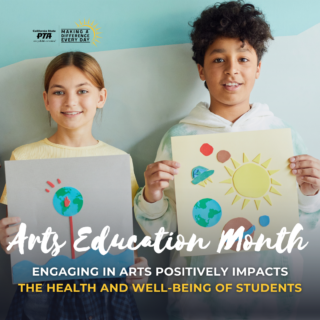Arts education has long been celebrated for fostering creativity, critical thinking, and cultural awareness. Yet, despite its proven benefits, arts education does not receive the time and attention it needs.

-
Deepening Creative Skills
One of the most significant benefits of arts education is its opportunity for students to develop their creative abilities. Creativity is not an innate talent but a skill that grows with practice and time. To truly foster creativity, students need sustained exposure to the arts. The longer a student engages in artistic endeavors, the more their skills will evolve, enabling them to experiment with new ideas, refine techniques, and push their artistic boundaries.
-
Cognitive and Emotional Benefits
Studies consistently show that arts education is linked to improved cognitive abilities, including enhanced problem-solving skills, memory retention, and attention to detail. Furthermore, the arts provide an emotional outlet, helping students express themselves in ways words often cannot. Extended arts education allows students to build emotional intelligence, deal with personal challenges, and develop resilience, all essential life skills.
-
Fostering a Lifelong Appreciation for the Arts
When arts education is limited, it’s easy for students to view it as an isolated event rather than an integral part of their lives. Schools can help students develop a more profound and more lasting appreciation for the arts by offering a sustained arts education. Whether it is music, theater, painting, or dance, exposure to the arts over a longer period allows students to explore different art forms, understand their cultural significance, and find what resonates with them personally. This sustained exposure is essential for cultivating a lifelong love and respect for the arts.
-
Building Collaboration and Communication Skills
Many arts programs, especially in disciplines like theater, music, and dance, require students to collaborate. Collaborative projects teach students how to communicate effectively, negotiate differing ideas, and support one another in achieving a common goal. These skills are vital for success in both academic and professional settings.
-
Enhancing Academic Performance
A growing body of research suggests that involvement in the arts correlates with better academic performance. Students who participate in arts education often show improvements in subjects like mathematics, science, and language arts. This phenomenon is likely due to the fact that arts education promotes critical thinking, spatial awareness, and creativity—skills that are transferable to other academic areas. Sustained engagement in the arts leads to better academic outcomes as students begin to understand how artistic skills can be applied in other subjects.
-
Promoting Cultural Awareness and Empathy
Art uniquely transcends boundaries and promotes understanding among diverse groups of people. Exposure to different cultural expressions through arts education helps students develop empathy and appreciation for the experiences of others. With a consistent arts education, students can explore diverse cultural histories, perspectives, and experiences in greater depth, broadening their understanding of the world.
Arts education is not a luxury but necessary to shape well-rounded, thoughtful, and creative individuals. While short-term or limited programs may offer a taste of what the arts offer, they are not enough to provide students with the depth of experience needed to reap the full range of cognitive, emotional, and social benefits. Providing multiple arts education programs gives students the time and space to develop their creativity, refine their skills, and gain a lasting appreciation for the power of the arts.
In a world where innovation and emotional intelligence are more important than ever, we must invest in arts education as a long-term priority for all students, regardless of their background or where they live.